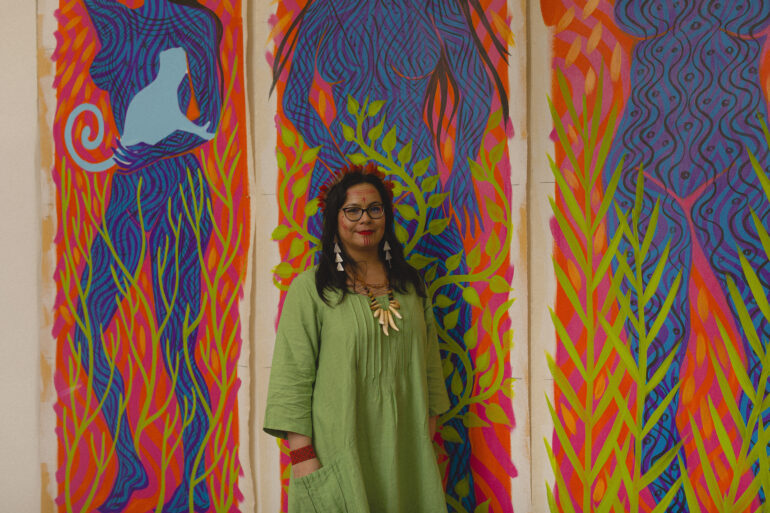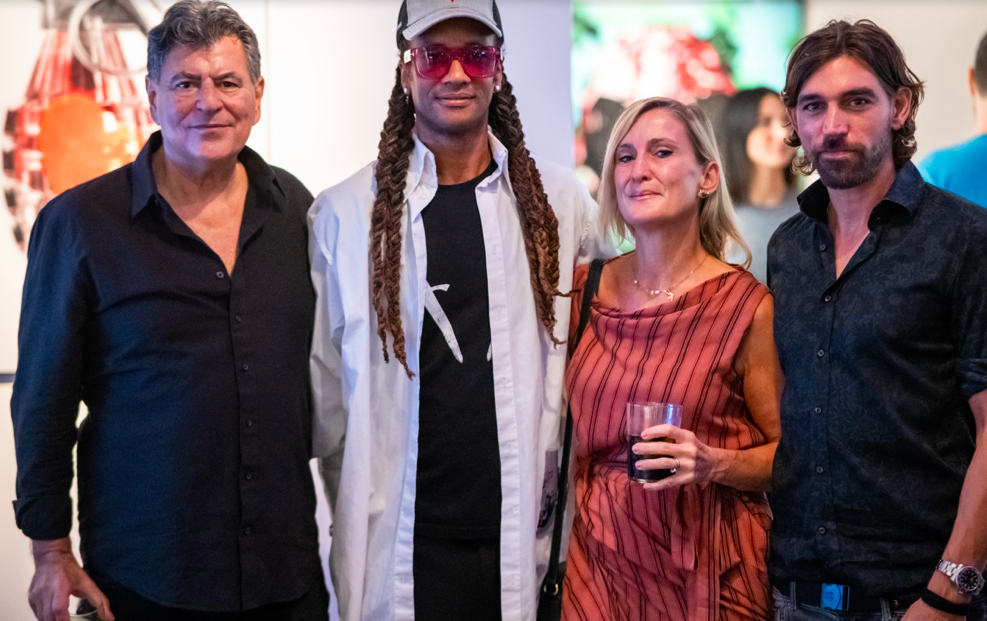Richard Saltoun Gallery in Rome is presenting the first solo exhibition in Europe of Brazilian indigenous artist and activist, Daiara Tukano. Tukano’s practice is rooted in her indigenous heritage and spirituality with a focus on deconstructing colonial legacies.
Daiara Tukano(b. São Paulo, 1982) is a traditional Duhigô name, and she is a part of the Erëmiri Hãusiro Parameri clan of the Yepá Mahsã people, better known as Tukano. Daiara is an artist, independent communicator, indigenous rights activist, and Human Rights researcher. Her work is based on the research of the traditions and spirituality of her people, especially through the study of the Hori. She has a Master’s degree in Human Rights from the Universidade de Brasília and a bachelor’s in Fine Arts from the same institution.
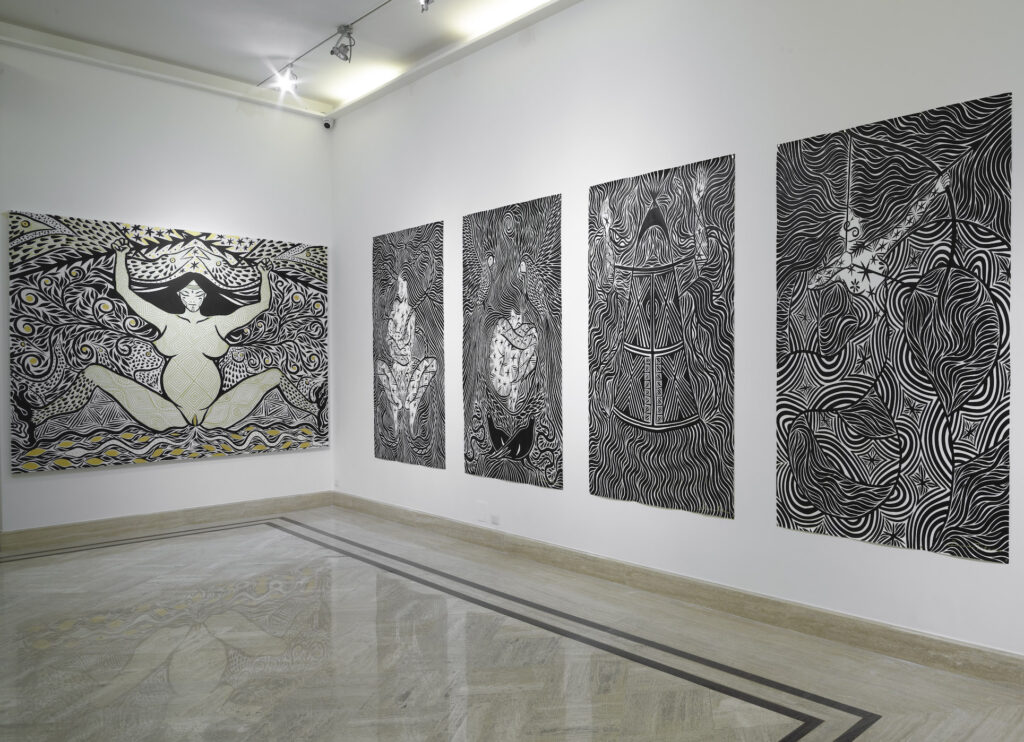
In her artistic practice, Daiara draws on her people’s ancient oral histories of creation, and the new body of work on display at Richard Saltoun Rome expands on the artist’s ongoing deconstruction of the legacies of racism and colonialism that marginalise Indigenous communities around the world, through a powerful matriarchal lens. The exhibition features a new series of monochrome ink paintings on paper, produced in Rome specifically for this show, which represent Tukano’s response to the Vatican’s colonial history and global assimilation of Indigenous cultures into Western culture.
Highlights of the exhibition include 2 large-scale paintings that were recently exhibited in London in the critically acclaimed Hayward Gallery exhibition ‘Dear Earth’; Pirõ nīkī. Forest of the serpent, and ‘Ohpëkó Pati – world of the sacred waters of the Grand Mother of the universe’. Both images engage with the origin story of humanity within the Tukano people’s mythology and beliefs. Tuka explores the axis of poignant global discourses surrounding eco-feminism, ecology, and Indigenous art practices in her work.
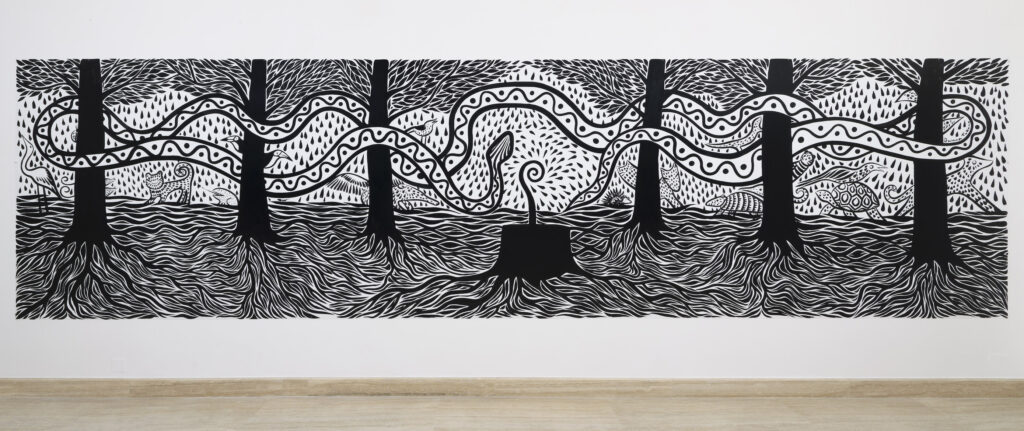
These themes reverberate throughout other institutional exhibitions that have featured Daiara’s work – such as her current solo, Pamuri Pati – World of Transformation at Museu Nacional da República in Brasília. Daiara was also the invited speaker for the public program The Future of Indigenous Art, Collections, and Exhibitions, accompanying the exhibition Siamo Foresta at Triennale Milano.
Daiara is a member of the Erëmiri Hãusiro Parameri clan of the Yepá Mahsã people, more widely known as the Tukano, from the Amazonian region of Alto Rio Negro. Her works are deeply rooted in exploring her people’s traditions and spirituality, often guided by her own dreams and visions induced by the native medicine of ayahuasca, and layered with a rich array of cultural references.
Daiara Tukano says of the new body of work on display in Rome: “Important moments in the history of the transformation of the universe, which is how the Tukano people talk about our ancient narratives that tell from the creation of the world, the emergence of life, the creation of humanity, and important figures for our culture.”
The imagery of these paintings also expands on Daiara’s previous series about the Amõ Numiã, or ‘first women’ – giant deities overlaid with dense patterns and plant motifs, at times appearing as half-female, half-animal. For Daiara, they represent the “female origins of creation”, and the harmonious interconnection between the human and natural worlds.
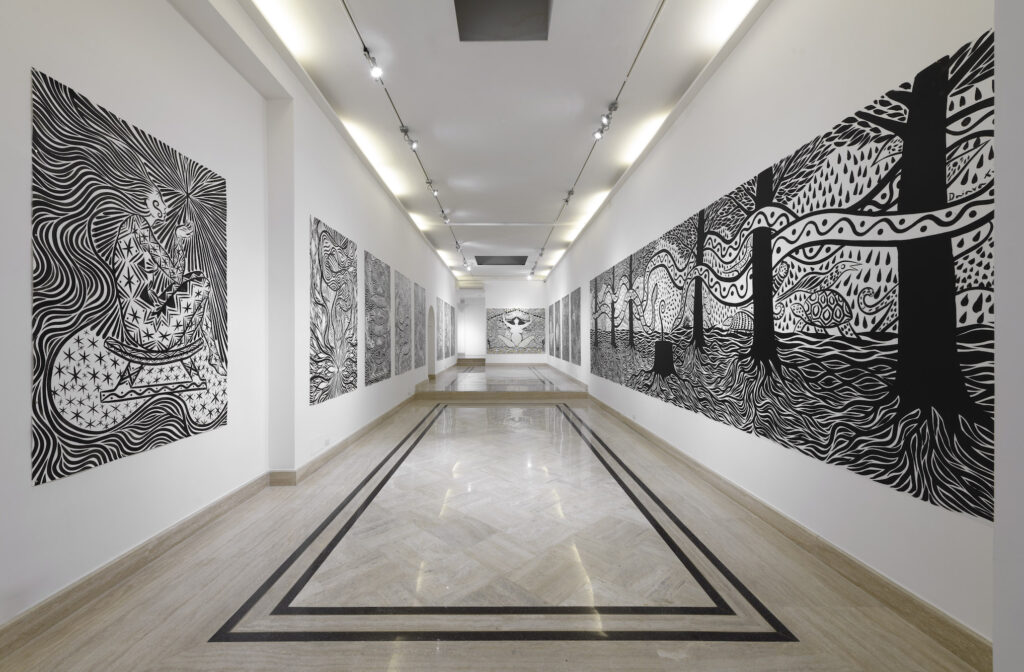
In reaffirming the origins and roots of her people’s history, Daiara is also consciously responding to the locality of Rome, and particularly the Vatican, as an epicentre of European material culture that is composed of different layers of its colonial past: “I had the opportunity to visit the Vatican Museum, where I found some objects from my Tukano people in the missionary ethnographic collection. Ancient objects that were brought here by catholic missionaries (…) within a policy of assimilation of the indigenous population into Western culture. These stories are part of the memory kept in this city.”
Daiara’s presentation at Richard Saltoun Gallery is at the centre of pivotal discourse around the politics and future of indigenous art and ecology. The artworks on display serve as powerful conduits to the collective memory and transformative history shared by Indigenous people, amplifying their collective voices and reaffirming their inherent right to their truth, land and memory.


